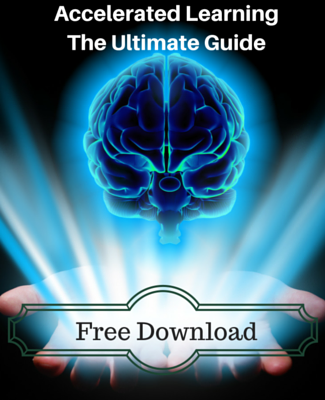The Keys to Freedom

A friend recently asked me, “to what extent are the outcomes of our lives within our control?”
And that’s an excellent question of particular importance of those of us interested in making the most out of life. In a sense, this comes back to the old “nature vs nurture” or even “free will vs determinism” questions. How much control do we really have over our own lives?
The only sure answer is that it depends. Some people clearly have more control over the outcomes of their lives than others. Access to resources, social status, and education are critical factors that determine how much influence we have over our lives. Some people are born into situations where the environment and social groups around them give them a huge degree of control.
Others have such a strong negative influences that they never have any chance to direct their growth. Anyone able to access this post, however, probably has the capacity to take his or her life to places beyond their wildest dreams. Let’s consider an example to put things in context.
Those least likely to be able take their lives into their own hands
At the extreme negative end of the spectrum, let’s consider the horrifying reality of slavery. Black slaves in the heart of the southern United States before the end of the US Civil War, 1865, had just about as little power as possible to influence the quality of their living situations. They had no opportunities for education, extremely little free time, and what little personal time they had was often needed for personal care-taking like preparing meals or washing clothes before getting to bed. On this extreme end of the oppressed spectrum, it is clear that slaves had very little influence over the outcomes of their lives, possibly no influence at all.
But what is possible with even the smallest window of opportunity?
There have been very few times or places in the history in the world that have been more terrible than slavery. That being said, from the most terrible situations sometimes emerge the most exceptional people.
Frederick Douglass is one them. He is one of the most inspiring examples of how much power and influence we can have over our lives when given even the most modest of advantages.
Frederick Douglass was born into slavery in Maryland. He was separated from his mother when still very young. He never learned the exact date of his birth and never came closer than knowing the time of year he was born, harvest season. Throughout periods of time he was subjected to severe whippings, like most slaves, which left his back scarred for life.
For anyone in such a terrible situation the word “advantage” is not entirely appropriate, but Douglass’s living situation was certainly not the worst compared to other slaves of the era:
For example, Douglass was born in Maryland where even though slaves were abused and treated completely inhumanely every day, things weren’t as bad as they were further south. Also, around 12 years of age Douglass was sent to work as a house slave in Baltimore. His new master and mistress were not accustomed to owning slaves. His mistress in particular was used to treating people like people, not property or animals. So she would do unusual things like look him in they eye, smile at him, and even treat him with curtesy, at first.
Keys to Freedom
At one point she began to teach him letters even though it was prohibited by law to teach a slave to read. Her husband caught her in the act one day and scolded her with a lesson that would forever change the trajectory of Douglass’s life. He berated her with an argument along the lines of:
You can’t teach a slave to read! You’ll ruin him in an instant. A slave who knows how to read will begin to think for himself and will cease to take orders so mindlessly. Not only that, but if you teach him to think, your are just making his situation worse for him because he will realize how terrible his condition truly is. He will no longer be content with this arrangement, and as a result he will just be miserable.
In his autobiography, Douglass explains how this moment provided him the keys to his freedom: reading and learning. He realized that if his master was so terrified that he continue learning and reading, then these had to be powerful tools that he must pursue by any means possible.
Whatever it Takes: Commitment to Learning
Though the reading lessons stopped immediately, and his mistress was swiftly corrupted by the “irresponsible power” of slavery, Douglass now had both hope and an answer. He must do whatever it would take to learn to read and write. He would slip off and look through the newspaper whenever possible. As a result, he was rarely allowed to be left alone. When he was quiet for any noticeable period, his mistress would come looking for him swiftly.
To develop his reading and writing skills, he would trick poor local white boys to teach him while he was out doing chores. He devised a number of plans to achieve this goal. And another unique aspect of his living situation made his plans possible.
A benefit of his position, relative to other slaves and even poor white people, was that there was always extra bread in the house that he could take as he wished. When sent to do chores around town, he would move in double time to complete the chore efficiently so that he had free time for his own development. He would then find poor local white boys and would exchange his bread for reading lessons. To learn to write he came up with an even more clever plan.
He would often challenge these boys with a comment, “I can write better than you can.” To which the other boy would disagree, and to settle the dispute they were forced to have a writing competition. At first, Douglass knew no more than 4 letters that were used to indicate where lumber piles were to be sent on shipping boats. He would write these four letters and then wait for the other boy to present his own abilities. Douglass would inevitably admit defeat, but the real goal was the writing lesson the unwitting boy had presented. Douglass could now go home and practice these new letters. And in this way he leveraged these slight advantages of his situation to develop a the abilities that, years later, he would use to escape his captors.
Persisting Through Life’s Trials
Before he was able to free himself, he was sent further south where he was subjected to a man whose specialty it was to “break slaves,” like horses, who were difficult to control. He spent years in the most trying circumstances and abusive situations known to man. But he never allowed his spirit to break.
Around the age of 20 Douglass did escape to the north. And around the age of 23, 1841, he gave his first speech to an all white audience regarding the horrors of slavery. His speeches were perfectly tailored for his audiences, so much so that now he is often used as a shining example of rhetoric even today. He presented a true picture of the evils of slavery without allowing himself to enter into emotional rants which could have offended and dissuaded his listeners.
His efforts played a key role in motivating the residents of the northern US to finally take action to confront the atrocities of slavery which culminated in the civil war, 1861-1865.
We All Have the Power to Direct Our Lives
So when I consider how a man like Frederick Douglass could create and take advantage of even the slightest opportunities in a situation of extreme oppression, overcome multiple obstacles to teach himself to read and write from the age of 12, use his learning and critical thinking to later free himself, and then put his skills, knowledge, and experience to use in order to help end slavery, I have to believe that we all have a great potential to influence the outcomes of our lives.
No one reading this, myself included, can even begin to imagine the full negative impact and oppression of being born into slavery. We are all in a position of privilege that can’t fairly be compared to the life of Douglass. So with the advantages available to us, we surely have the ability to take our lives in any direction we choose. But no one said the experience is easy.
For Douglass, learning, reading, and the commitment to do whatever it takes to accomplish his goals were the keys to his liberation. These same qualities of character are our own keys to free ourselves from the shackles of our present living conditions, whatever they may be. It may not always be possible to dictate the exact outcomes we’d like. But with these humble qualities, any of us has the power to take our lives in any direction we choose.
The power is yours; the power is all of ours. We are all capable of incredible things if we are willing to persevere for our dreams.



[…] turned out that reading and learning were 2 of the Keys to his Freedom, figuratively, psychologically and […]